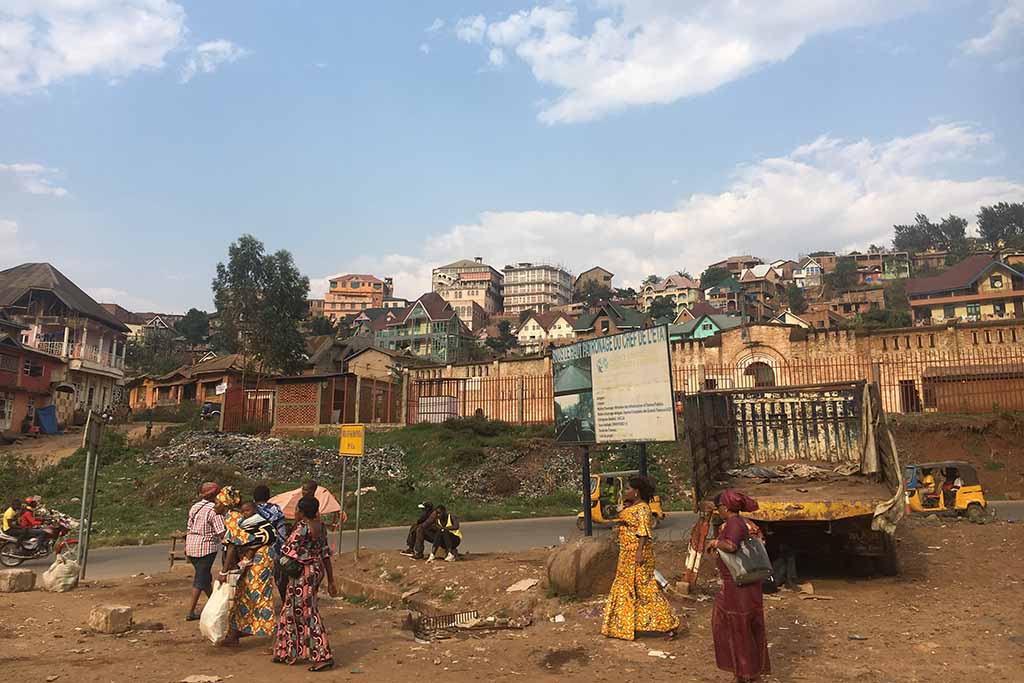M23 behind sexual violence and forced recruitment in DR Congo
Sexual violence, forced recruitment of child soldiers, and mass displacement have become the new reality for women and children in the eastern parts of the Democratic Republic of the Congo. But despite insecurity, limited resources, and constant threats, The Kvinna till Kvinna Foundation’s partner organisations remain on the ground.

Since the rebel group M23 seized control of large parts of South and North Kivu in early 2025, the situation for civilians has rapidly deteriorated. The violence affects entire communities—but women and children are hit the hardest. At the same time, the work of organisations trying to support those affected has become increasingly dangerous.
“Like other armed groups in the region, M23 uses sexual violence as a weapon of war. Women and children, especially in areas under M23 control, are at risk of gang rape, sexual slavery, and forced recruitment as soldiers,” says Kvinna till Kvinna staff on the ground.
Sexual and gender-based violence has long been a widespread issue in the Democratic Republic of the Congo (DRC). But since M23 gained control over large parts of South and North Kivu, the use of rape, sexual abuse, and the recruitment of child soldiers has escalated significantly. Violence is being used as a deliberate tool to instil fear and divide communities.
“Kidnappings are increasing, and thousands of children—both girls and boys—are subjected to violence and abuse while being deprived of their most fundamental rights.”
Many children are abducted and forced to take part in the conflict. Meanwhile, the escalating fighting has displaced thousands of families—the majority of whom are women and children. Today, they live in makeshift camps or extremely precarious conditions without access to food, protection, or healthcare.
Children’s access to education has also been severely disrupted. Due to the conflict, many schools have been forced to close, and final-year students have not been able to take their national exams—something that gravely affects their future.
Partner organisations shifting focus to documenting abuse
AFEJUCO — Association of Women Lawyers in Congo, is a network of female lawyers and one of Kvinna till Kvinna’s partner organisations. Previously, their work focused on providing legal support to women and children affected by violence, and on training police officers and staff who interact with survivors. But due to the worsening conflict and a collapsing justice system, they have been forced to redirect their efforts.
Today, AFEJUCO is working to document the alarming increase in sexual and gender-based violence cases. They are already planning to gather testimonies from around 150 survivors of violence across eastern Congo. In addition, they aim to provide support sessions for women who have been subjected to such violence.
“They are also planning to organise meetings with community leaders to strengthen local engagement in the fight against violence,” says Kvinna till Kvinna staff.
Growing insecurity for women’s rights defenders
The current security situation is making it extremely difficult for both local and international organisations to operate. Médecins Sans Frontières reports on the chaotic conditions and the looting of humanitarian warehouses.
Long-term efforts to promote and protect the rights of women and children—such as support centres for survivors of sexual violence and information campaigns—have also been severely affected by the ongoing insecurity.
For women’s rights defenders, the escalating conflict has led to an increased risk of threats and harassment. Activists who document abuse or support survivors of violence risk reprisals, and the struggle for justice is becoming increasingly dangerous.
“Some areas under M23 control find themselves in a situation of “lawlessness,” where authorities are absent or weak. This gives armed groups a carte blanche to commit abuses with impunity, making the work of local human rights organisations even more difficult.”
Despite the threats, the struggle continues
In an increasingly unstable context, Kvinna till Kvinna and our partner organisations continue to stand by women and girls in the DRC—listening to them telling their experiences and needs, documenting violations, and working to ensure that survivors receive the support and justice they are entitled to.